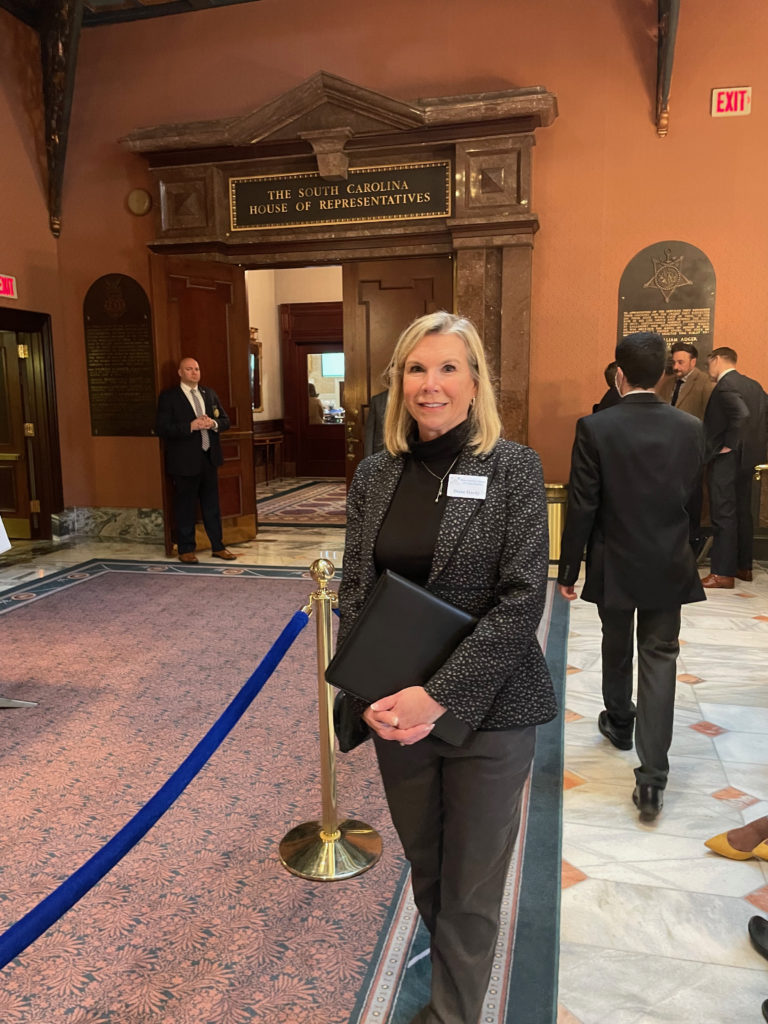|
Getting your Trinity Audio player ready...
|
by DIANE HARDY
***
The Mom and Pop Alliance of South Carolina would like to comment on Nick Loris’ article dated February 9, 2024. Since we have written several articles on this topic over the past three years, we find it necessary to provide the rest of the story on the social credit scoring system of ESGs in SC, to clear up any potential confusion on this very important but complex topic.
Mr. Loris stated that Act 103 of 2024 – signed into law by governor Henry McMaster last week – requires state pension fund officials to only consider financial factors when making investment decisions. You would think one could not possibly argue with this since it is consistent with the Federal ERISA Act passed back in 1974. Obviously, it is only right to look out for the financial interests of our state’s retirees. However, in our opinion the bill is even milder than he describes in that it merely allows South Carolina to reclaim control of our state pension funds proxy votes so “they are in keeping with its fiduciary duties” and not used in the “promotion, furtherance, or achievement of environmental, social, or political goals, objectives, or outcomes.”
Since the bill does not move South Carolina’s retirement funds out of pro-ESG investment firms such as BlackRock and others and it does not help protect smaller businesses who are vendors of large corporations from the impacts of ESG compliance, we at the Mom and Pop Alliance have actually been advocating for stronger ESG bills, along the lines of what Florida has done.
***

***
The author describes McMaster’s signing of H3690 as “…a dangerous trend in government overreach that politicizes investment funds at the risk of pensioners and taxpayers.” So, we are supposed to believe that South Carolina obtaining control of our proxy votes from our state’s investments is a dangerous trend in government overreach?
There is a lot of government overreach these days, but not in this case. Ironically, it is the social credit scoring system of ESGs that is responsible for politicizing investment funds. In reality, ESGs are used to usher in left-leaning policies, and more specifically, policies that are not popular with voters and would not make it through the normal democratic process. It is important to emphasize that our Alliance strongly supports FULLY INFORMED individual investors having the choice to invest in pro-ESG accounts. We believe if folks would like to place their own money in investments in furtherance of ESG that should be their right. What we take issue with is when investors’ money goes toward pro-ESG causes without their knowledge or consent.
We also disagree with the author that investors’ sustainability considerations do not impose ideology. Sustainability has been a global ideology with impacts nationwide all the way down to small businesses.
***
RELATED| SOUTH CAROLINA’S BATTLE AGAINST ESGs
***
South Carolina family-owned businesses have received surveys asking questions about the number of gas-powered vehicles their business uses, or “does your organization have a public disclosure on their commitment to environmental sustainability?” and “does your company have an environmental footprint determined?”
One South Carolina small business owner was actually required by a German supplier to conform to Germany’s ESG compliance mandates – and to pay for an ESG report using the compliance company specified by the German supplier. If your company needs that supplier to function you have no choice, which could be viewed as part of the extortion of ESG that continues to feed the new ESG/DEI Compliance Industrial Complex with cash. There’s much money to be made generating ESG compliance reports, providing DEI training to employees, and ESG continuing education for management. These increased costs at every link of the supply chain are passed on to customers and contribute to inflation.
“Florida and Texas have both passed ESG protection bills and their state economies are booming…”
But, of course, ESGs are about much more than making money and promoting a green agenda. They have also been used to promote the LGBTQ marketing of products, furtherance of DEI, restricting use of fertilizers, loss of banking services for gun companies, loss of permits/ investments for energy companies, and so much more.
It’s also interesting to note that ESG compliance mandates are largely practiced within western nations while not implemented in China (they are considered a developing nation, and so are exempt from these constraints), giving them a very large advantage in global markets.
***
(Click to view)
***
Additionally, we see little evidence to support the author’s assertion that states which attempt to protect their pension funds from ESG/DEI agendas fare worse financially. Florida pulled its retirement funds from BlackRock and still delivered a 7.5 percent return last year compared to California’s very pro-ESG pension fund at 5.8 percent and even South Carolina’s 6.8 percent return last year.
Nor do we at the Alliance agree that states that pass bills providing ESG protections suffer economically. Florida and Texas have both passed ESG protection bills and their state economies are booming – both ranking among the top three or top ten of all states economically, depending on the metrics, while the Palmetto State ranks 28th.
We agree “free-market principles drive innovation, boost productivity and ensure economic efficiency,” but disagree with the author’s assertion that ESG investing on behalf of states is the way to achieve these goals. Such an assertion is patently false. The great irony is that many ESG proponents claim it is useful in introducing “stakeholder capitalism” as a means to replacing free markets. In reality, we see growing and ever-changing ESG metrics stifling free markets, innovation and decreasing productivity. Because ESGs impact both representative government and free markets, the Mom and Pop Alliance will continue to provide awareness and education on this very complex topic designed to affect businesses of all sizes.
The Mom and Pop Alliance remains committed to advocating for greater protections for South Carolina’s hard-working small businesses from policies that hinder free markets and small businesses’ opportunities for maximizing prosperity.
***
ABOUT THE AUTHOR…

Diane Hardy is a former nurse anesthetist turned entrepreneur, who opened a franchise at Verdae in Greenville over seven years ago. She is executive director of the Mom and Pop Alliance of SC, which she founded during Covid upon discovering South Carolina’s almost 400,000 small businesses had little representation in our State House. The Alliance provides education, communication, and advocacy for SC’s family-owned businesses. Her passion for South Carolina’s small business is strong, and as such she donates her time to the organization, accepting no salary or government funding. Her love for our state isn’t new. Before launching the Mom and Pop Alliance she was the founder and host of The Palmetto Panel (2014-2019), an annual statewide conference highlighting issues impacting South Carolina. Diane has a bachelor’s degree in nursing and psychology from Michigan State as well as a master’s degree from MUSC.
***
WANNA SOUND OFF?
Got something you’d like to say in response to one of our articles? Or an issue you’d like to address proactively? We have an open microphone policy! Submit your letter to the editor (or guest column) via email HERE. Got a tip for a story? CLICK HERE. Got a technical question or a glitch to report? CLICK HERE.




1 comment
The Florida economy sucks. Young people want to leave. Insurance and HOA fees are driving seniors out. Housing prices are dropping throughout the state, particularly in retirement communities; and businesses would be a fool to invest there because they never know when Republicans are going to use them for a punching bag, the way they did with Disney, which has canceled millions of dollars in planned expansion. Just another state screwed up by Republicans.
You are doing nothing for small businesses. You are just telling them they are a victim so you can get them to pay you money to defend them. The only thing this has to do with “small business” is how your “small business” makes money.